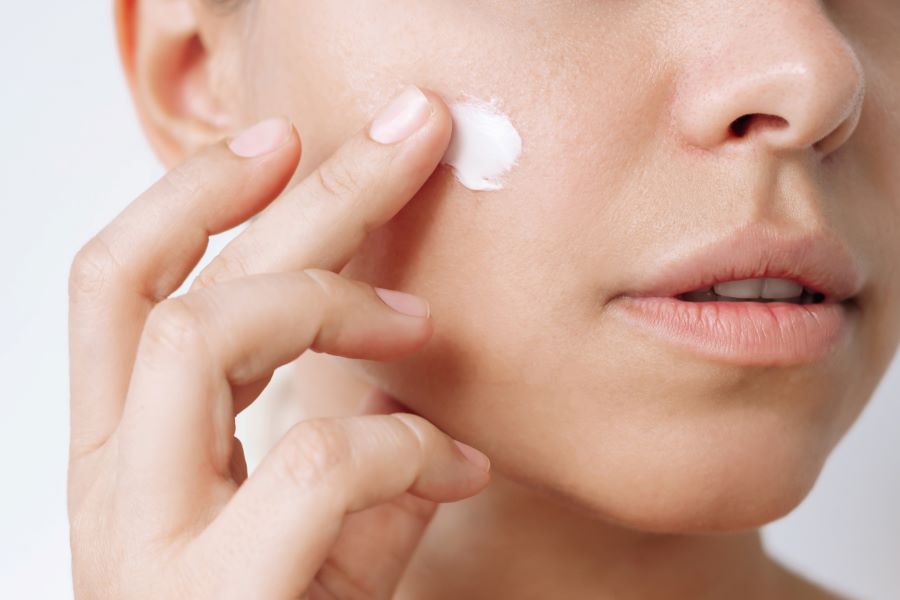Skin Fasting: The Minimalist Approach to Skincare
In a world inundated with multi-step skincare routines and an ever-expanding array of products promising miraculous results, a counterintuitive trend has emerged: skin fasting. This minimalist approach to skincare challenges conventional wisdom by advocating for periodic breaks from all skincare products. Proponents claim that by allowing the skin to "breathe" and regulate itself naturally, we can achieve a healthier, more balanced complexion. But is there scientific merit to this practice, or is it simply another fleeting beauty fad? As the skincare industry continues to evolve, skin fasting has sparked debate among dermatologists, estheticians, and beauty enthusiasts alike, raising important questions about our relationship with skincare and the true needs of our largest organ.

The practice gained traction in the mid-2010s as a response to the rise of complex, multi-step skincare routines popularized by Korean beauty trends. As consumers became overwhelmed by the sheer number of products and steps in their daily regimens, the appeal of a simplified, minimalist approach grew. Skin fasting offered a refreshing alternative to product overload, promising to reset the skin’s natural balance and improve its overall health.
The Science Behind Skin Fasting
The core principle of skin fasting is based on the skin’s inherent ability to regulate itself. Proponents argue that constant use of skincare products can disrupt the skin’s natural processes, leading to dependency and potential imbalances. By temporarily abstaining from all products, the skin is theoretically given a chance to recalibrate its own functions.
One of the key mechanisms at play during skin fasting is the skin’s natural moisturizing factor (NMF). The NMF is a complex mixture of compounds that help maintain skin hydration. Some dermatologists suggest that overuse of moisturizers can signal the skin to reduce its own NMF production, creating a cycle of dependency. Skin fasting may allow the skin to boost its NMF production, leading to improved hydration from within.
Additionally, the skin’s acid mantle, a thin protective layer on the surface, plays a crucial role in maintaining skin health. This slightly acidic film helps protect against bacteria, fungi, and other potential irritants. Some skincare products, particularly those with high pH levels, can disrupt the acid mantle. Skin fasting allows time for this protective barrier to reestablish itself, potentially improving skin resilience.
Implementing Skin Fasting: Approaches and Considerations
There are various approaches to skin fasting, ranging from complete product abstinence to more moderate methods. The most extreme form involves avoiding all skincare products, including cleansers, for a set period, typically ranging from 12 hours to several days. More moderate approaches might involve simplifying the routine to just a gentle cleanser and sunscreen, or alternating “fasting” days with regular skincare days.
It’s important to note that skin fasting may not be suitable for everyone. Those with specific skin conditions such as acne, rosacea, or eczema should consult with a dermatologist before attempting skin fasting, as it could potentially exacerbate their symptoms. Additionally, individuals using prescription skincare treatments should not discontinue these without medical advice.
For those interested in trying skin fasting, it’s recommended to start with shorter periods and gradually increase the duration if desired. Many practitioners find that an overnight fast (12-14 hours) is a good starting point, allowing the skin to “rest” while sleeping.
Benefits and Potential Drawbacks
Advocates of skin fasting report a range of benefits, including improved skin texture, reduced oiliness, and a more balanced complexion. Some users claim that their skin becomes more resilient and less reactive to environmental stressors after periods of fasting. There’s also anecdotal evidence suggesting that skin fasting can help identify which products in a routine are truly necessary and which may be superfluous or even detrimental.
However, skin fasting is not without its critics. Some dermatologists argue that completely abandoning skincare, even temporarily, can lead to increased dryness, irritation, and vulnerability to environmental damage. There’s particular concern about forgoing sun protection, which is crucial for preventing premature aging and skin cancer.
Furthermore, the benefits of skin fasting may vary greatly depending on individual skin types and conditions. While those with naturally balanced skin might see improvements, individuals with dry or sensitive skin may experience discomfort or exacerbation of existing issues.
Skin Fasting in the Context of Modern Skincare
The emergence of skin fasting reflects a broader shift in the beauty industry towards minimalism and skin health. As consumers become more educated about skincare ingredients and their effects, there’s a growing emphasis on streamlined routines that prioritize skin function over temporary cosmetic improvements.
This trend aligns with the concept of “skinimalism,” which advocates for using fewer, but more effective, products. It also dovetails with the rising interest in “clean” and “natural” beauty, as consumers seek to reduce their exposure to potentially harmful chemicals.
However, it’s important to distinguish between mindful product reduction and complete abstinence. While skin fasting in its extreme form may not be suitable for everyone, the underlying principle of periodically simplifying one’s skincare routine can be beneficial. This approach encourages a more thoughtful, personalized relationship with skincare, moving away from the one-size-fits-all mentality that has dominated the industry for years.
The Future of Skin Fasting and Minimalist Skincare
As the beauty industry continues to evolve, skin fasting is likely to remain a topic of interest and debate. While more research is needed to fully understand its long-term effects, the concept has already influenced product development and marketing strategies. We’re seeing a rise in “skin fasting-friendly” products designed to support the skin’s natural functions rather than override them.
Looking ahead, the principles behind skin fasting may contribute to a more holistic approach to skincare that considers lifestyle factors alongside product use. This could include a greater emphasis on nutrition, stress management, and sleep quality as key components of skin health.
Ultimately, the skin fasting trend underscores the importance of listening to our skin and recognizing its innate wisdom. Whether through periodic fasting or simply a more minimalist approach to daily care, the movement encourages us to trust in our skin’s natural abilities and to view skincare as a supportive, rather than corrective, practice. As we continue to navigate the complex world of beauty and wellness, skin fasting offers a compelling reminder that sometimes, less truly can be more.






